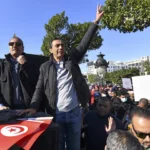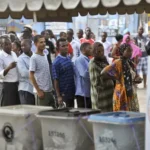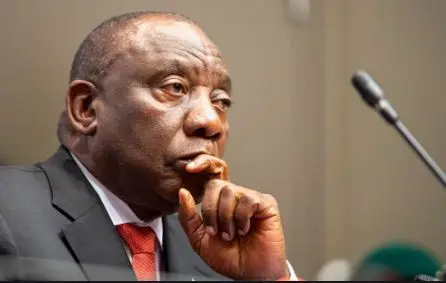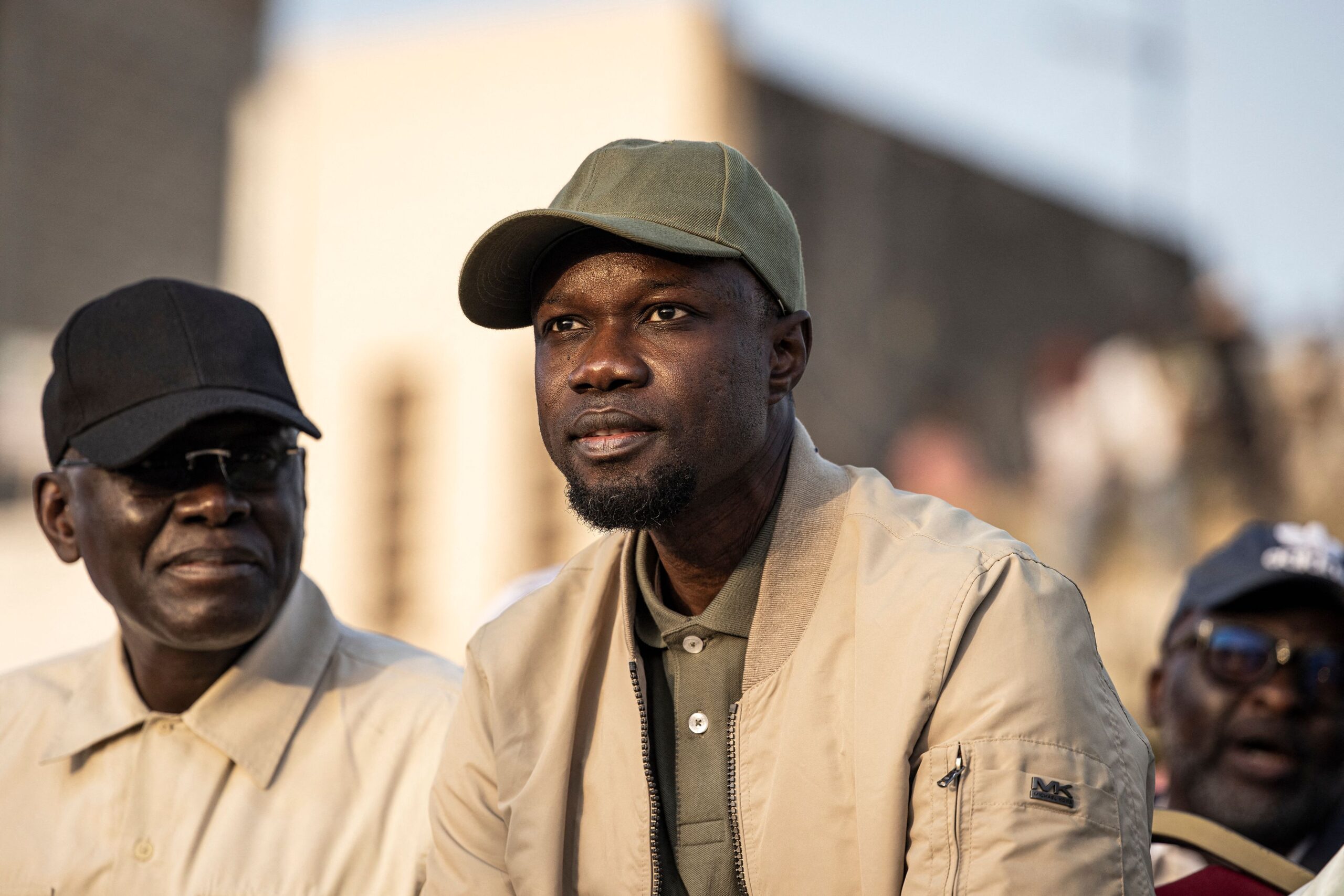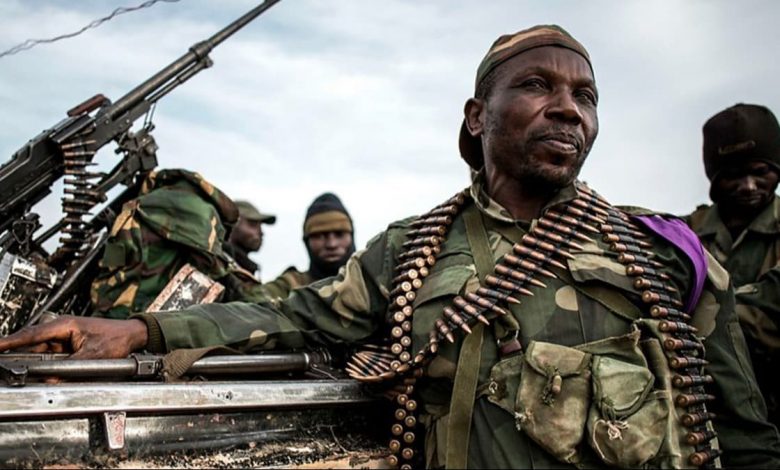Bomb blast kills 12 in Nigeria bus
The incident occurred when a commercial bus triggered an improvised explosive device (IED) planted under a road.
Six dead, hundreds trapped in illegal South African gold mine
The South African government has been struggling to address the issue of illegal mining, which has led to numerous accidents and fatalities.
Heavy rains claim 11 lives, displace dozens in Malawi
Disaster agency reports 80 injured, pledges aid for displaced families
Atlas workshops boost African and Arab cinema
The Marrakech International Film Festival is providing a valuable platform for emerging filmmakers from Africa and the Arab world.
ADF rebels kill 10 in eastern DR Congo
The ADF, an Islamic State-linked group, has been responsible for numerous attacks in the region, leading to significant loss of life and displacement.
Agriculture: The backbone of Africa’s workforce and economic growth
Agriculture remains a cornerstone of Africa’s economy, employing around 60% of the continent’s workforce
WFP faces internal scrutiny over Sudan operations
An internal report has revealed significant shortcomings in the World Food Program’s (WFP) response to the ongoing crisis in Sudan.
Tensions mount as Ghana prepares for key election on Saturday
Polls indicate a strong lead for opposition leader John Dramani Mahama and his National Democratic Congress (NDC), as Ghanaians demand change
Biden pledges $1B+ in aid for displaced Africans
‘We know African leaders and citizens are seeking more than just aid. You seek investment,’ US president says in historic visit to Angola
Heading towards Ghana’s general election
Public frustration over Ghana’s economic struggles, including rising prices and a lack of jobs, has dominated the lead-up to Saturday’s general election, which is expected to test the nation’s democratic resilience. Support for outgoing President Nana Akufo-Addo and his ruling New Patriotic Party (NPP) has plummeted during his second term, amid the worst economic crisis in decades, protests over the cost of living, and instability in key industries such as cocoa and gold. As a result, the push for change has tipped both the presidential and legislative races in favor of opposition leader John Dramani Mahama and his National Democratic Congress (NDC), according to recent polls. However, many voters are growing disillusioned with the political process. “The country is ruined. I will vote, but I don’t think it will change anything,” said 18-year-old Emmanuel Kwaku Jr, a high school graduate casting his ballot for the first time. A recent survey by pan-African research group Afrobarometer found that 82% of Ghanaians feel the country is headed in the wrong direction, with fewer than half expecting improvement in the coming year. “We have the trappings of democracy: we hold elections every four years, yet the benefits are minimal,” said Abena Tekyiwaa Manuh, senior fellow at the Accra-based Centre for Democratic Governance (CDD). “That’s dangerous.” Ghana’s commitment to two-term limits for presidents and largely peaceful transitions of power has made it an exception in a region increasingly plagued by coups and political instability. However, whoever wins the election will face immense pressure to fulfill campaign promises and improve the lives of citizens. If not, the youthful population may begin to question whether democracy is overrated, said Manuh and two Western diplomats. “We see a lot of anger among the youth, a sense of hopelessness, but also a sense of change. If that change doesn’t happen after the elections, what will happen?” one diplomat asked, speaking on condition of anonymity. “There is growing concern that Ghana’s peace and democracy are fragile.” A ‘Tricky Phase’ Twelve candidates are running for president, with Mahama and Vice President Mahamudu Bawumia of the ruling NPP seen as the leading contenders. Both have pledged to address the economic instability that has plagued the country since 2020, including soaring inflation, a $3 billion IMF bailout, and massive debt restructuring. Polls open at 0700 GMT and close at 1700 GMT for the 18.7 million registered voters. Legislative results are expected by early Monday, with presidential results due by Tuesday. However, trends may allow the outcome to be called earlier. The results period is expected to be “a tricky phase,” with rising tensions due to a lack of trust in institutions, including the electoral commission, said Jonas Claes, elections lead for the EU delegation in Ghana. Mahama and the NDC have repeatedly questioned the commission’s ability to conduct a credible election, citing voter roll irregularities and other concerns. Bawumia and the NPP, on the other hand, argue that the allegations are an attempt by Mahama to prepare for rejecting the results if they don’t go his way. “I don’t think widespread violence is expected, but it’s hard to be 100% sure,” Claes said.
Burundian youth flee to Tanzania for Work, face abuse and deportation
Young Burundians are fleeing to Tanzania in search of work, but many face harsh treatment upon arrival. Accused of being illegal migrants, they are often hunted down, arrested, beaten, and imprisoned before being deported back to Burundi. Once home, many are taken in by families in Mabanda, southern Burundi. Habimana Domatien, a 23-year-old from Kayanza in northern Burundi, recalls his traumatic experience in Kasulu Prison. “We were surrounded, arrested, and taken to a station. We were beaten at night, slapped, and severely mistreated. It was very hard,” he says. Host families in Burundi are calling on Tanzanian authorities to stop the mistreatment of these young migrants. “We ask Tanzania not to harm them. Some return traumatized, depressed, and almost beyond recovery. The Tanzanian government should treat our youth with kindness, as we do when they come to us,” says Olive Sindayihebura, a representative of host families. NGOs report that around 300 children have been expelled from Tanzania in the past two months. Ferdinand Simbaruhije, spokesperson for the National Federation of Associations for Children’s Welfare in Burundi (FENADEB), states that between July and September of this year, 149 children were expelled—147 boys and two girls. An additional 182 children returned voluntarily, bringing the total to 291. FENADEB attributes the migration of Burundian youth to widespread poverty, with many falling prey to human trafficking networks operated by Burundians in collaboration with Tanzanian traffickers.
IFAD urges investment in small farmers at COP16
The UN’s International Fund for Agricultural Development (IFAD) is urgently calling for increased investments to support small-scale farmers in combating land degradation and desertification. These efforts are critical to safeguarding global food security, climate stability, and ecosystems, as the sixteenth Conference of the Parties (COP16) to the United Nations Convention to Combat Desertification (UNCCD) takes place this week in Riyadh, Saudi Arabia. IFAD President Alvaro Lario, who is attending COP16 in Riyadh, is advocating for small-scale farmers and producers who are grappling with the devastating effects of drought and desertification—challenges that threaten the livelihoods of approximately 1.5 billion people worldwide. The drought in East Africa, which has been the worst in over 40 years, and the worsening conditions in North Africa underscore the urgency of addressing these issues. In the Sahel region, which forms a barrier to the Sahara Desert, desertification has advanced up to 200 kilometers southward over the past 30 years. This year, Zimbabwe has experienced its worst drought in living memory, leading President Emmerson Mnangagwa to declare a nationwide state of disaster. Many small-scale farmers in Zimbabwe rely on rainfed agriculture, and the ongoing drought—driven by El Niño—has led to widespread crop failure. An estimated 40% of farmers have lost their entire harvest, and poor infrastructure, including broken irrigation systems, is further hampering efforts to grow crops. The situation is expected to leave 6 million people in Zimbabwe food insecure during the 2024-2025 lean season (January to March). In response, IFAD has been supporting initiatives such as the Smallholder Irrigation Revitalization Programme (SIRP), which is helping thousands of farmers maintain crop production despite limited rainfall. This project, benefiting over 27,000 rural households, aims to restore irrigation systems and improve climate resilience and food security across Zimbabwe. At COP16, IFAD will emphasize the urgent need for greater investment in small-scale farmers, who produce 40% of the world’s food, and 60% of Africa’s food. “The world’s 500 million small farms are the backbone of global food systems,” said IFAD President Lario. “They are the most vulnerable to climate change and the least prioritized for investment. Supporting them is essential if we want to ensure long-term food security.” IFAD will also stress that neglecting investment in food security, poverty reduction, and stability has dire consequences. In addition to the human and economic toll, land degradation and climate change could drive as many as 700 million people to migrate by 2050, further exacerbating global challenges. Small-scale farmers play a pivotal role in economic stability, particularly in many developing countries where agriculture is a key driver of GDP.
US lawmakers seek tougher stance on Sudan conflict
The move comes as the humanitarian crisis in Sudan worsens, with millions facing starvation and displacement.
Refugees fleeing Sudan find hunger and hardship in Chad
Sudanese refugees fleeing war are facing dire hunger and harsh conditions in Chad as conflict and aid barriers worsen their plight.
Zimbabwe court rejects abortion ban for marital rape
Unsafe abortions claim many lives in Zimbabwe annually; a new court ruling now enables safe, legal abortion for girls under 18 and victims of marital rape.
Sudan’s cholera outbreak claims 1,200+ lives amid war
The international community is calling for urgent humanitarian aid to address the cholera outbreak in Sudan.
Ethiopia tightens restrictions on rights groups amid conflicts
Human Rights Watch has accused Ethiopia of silencing independent rights groups amid worsening conflict and growing international concern.
East Africa’s ancient role in Indian Ocean tade
Before colonization reshaped global commerce, East Africa played a pivotal role in the Indian Ocean Trade Network
Ramaphosa highlights Africa’s growth at G20 leadership launch
South Africa’s G20 presidency focuses on giving Africa a stronger voice in global economic policies, championing growth and equitable progress.
Unknown disease claims 143 lives in southwest Congo
Flu-like symptoms and rising fatalities from an unknown disease in Congo’s rural health zones have raised concerns among local and international health experts.
Namibia’s SWAPO party leads in election results
The release of results was delayed due to logistical challenges, including ballot paper shortages and technical issues at some polling stations
Biden’s Angola visit marks US reengagement with Sub-Saharan Africa
Biden’s agenda includes discussions with Angolan President João Lourenço, a visit to the National Slavery Museum, and a trip to Lobito to inspect a U.S.-backed railway project
Guinea declares three-day mourning after deadly stadium stampede
A three-day national mourning period has been declared for the victims of a deadly stadium stampede in southeastern Guinea. The government announced that the mourning period was declared in memory of the 56 people who lost their lives in the stampede during the General Mamadi Doumbouya Football Tournament, held in N’Zerekore, about 850 kilometers from Conakry. A delegation led by Prime Minister Bah Oury has traveled to N’Zerekore to investigate the incident. The violence broke out on Sunday during a match between the N’Zerekore and Labe teams, after the referee awarded a penalty to the home team. This decision sparked clashes within the stadium. To control the situation, police used tear gas to disperse Labe supporters who were attacking the referee, and the fans retaliated by throwing stones at the officers. The resulting stampede claimed the lives of 56 people, including children, and left hundreds more injured.
Egypt hosts conference on Gaza’s humanitarian crisis
On Monday, Egypt hosted an international conference in Cairo to garner humanitarian support for Gaza, which has been devastated by over a year of conflict between Hamas and Israel. The event was attended by numerous senior regional and Western officials, as well as UN Deputy Secretary-General Amina J. Mohammed and other top UN representatives, according to Egypt’s Foreign Ministry. The conference was convened amid a rapidly worsening humanitarian crisis in Gaza, particularly in the northern regions, which have been nearly cut off from the rest of the Strip for almost two months. Discussions at the conference focused on the political, security, and humanitarian challenges in Gaza, with a particular emphasis on supporting the operations of UNRWA, the UN agency responsible for Palestinian refugees. On Sunday, UNRWA announced it would suspend aid deliveries through the Kerem Shalom crossing, Gaza’s main cargo entry point, due to the threat of armed groups looting aid convoys. The agency cited the breakdown of law and order in Gaza, which it attributed to Israel’s policies. This move by UNRWA could exacerbate Gaza’s already dire humanitarian situation, as a second cold and rainy winter approaches. Hundreds of thousands of Palestinians remain in overcrowded and unsanitary tent camps, heavily dependent on international aid. Experts have warned of the potential for famine in Gaza’s northern regions, which have been almost entirely isolated by Israeli forces since early October. In response, Israel’s military body responsible for coordinating humanitarian aid to Gaza stated on X (formerly Twitter) that it would continue to work with the international community to increase aid deliveries through Kerem Shalom and other crossings. It also claimed that in November, UNRWA coordinated less than 10% of the aid that entered Gaza.
East African sailors harnessed monsoon winds to forge global trade routes
East African sailors played a pivotal role in ancient global commerce by mastering the monsoon trade winds
Senegal’s Sonko retains PM role after election win
Senegal’s ruling party, led by President Bassirou Diomaye Faye and Prime Minister Ousmane Sonko, has secured a landslide victory in the recent parliamentary elections.
ADF rebels kill civilians, abduct others in eastern DR Congo
slamic State-linked Allied Democratic Forces (ADF) rebels have killed at least 10 people and abducted others in an attack on a village in eastern Congo.


